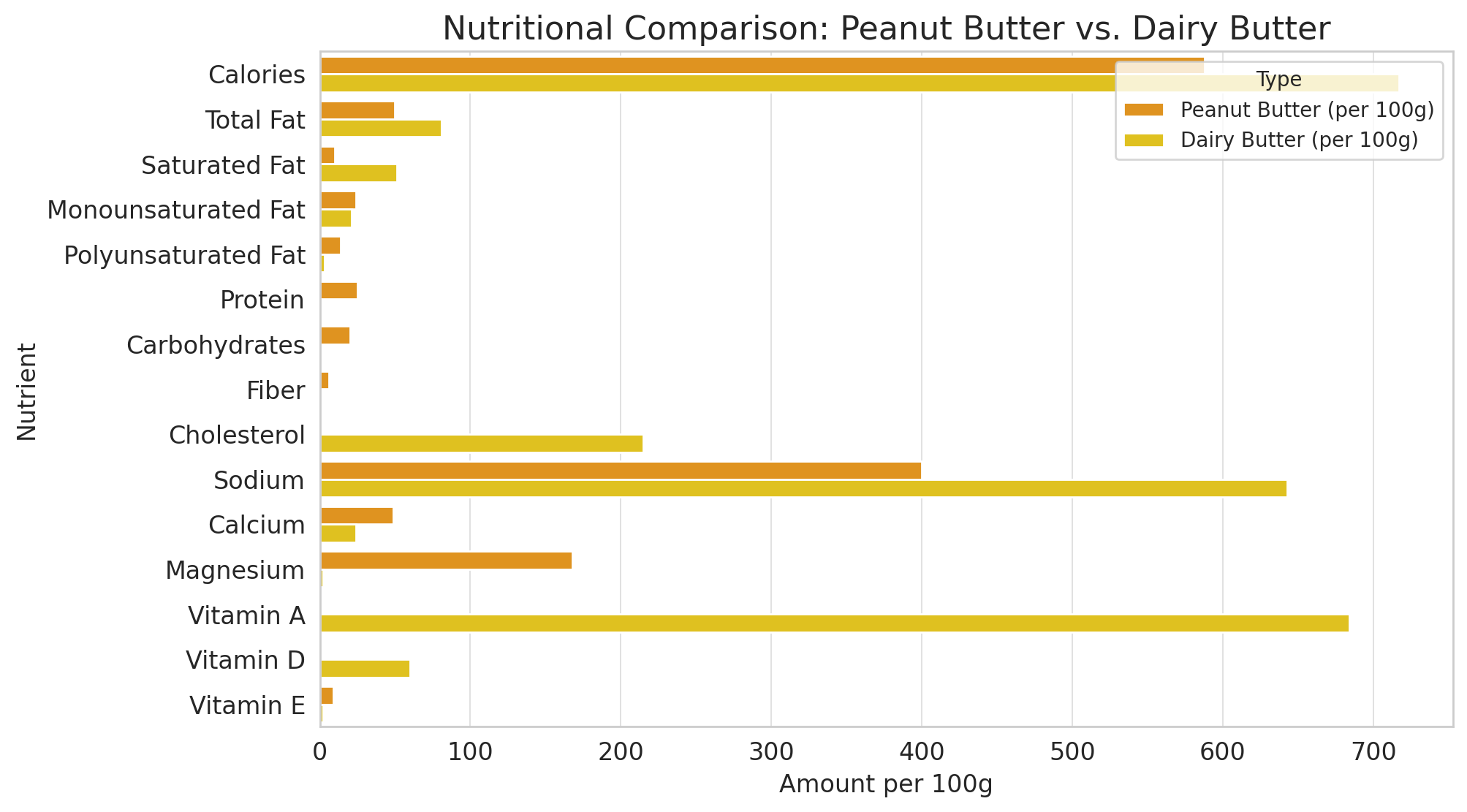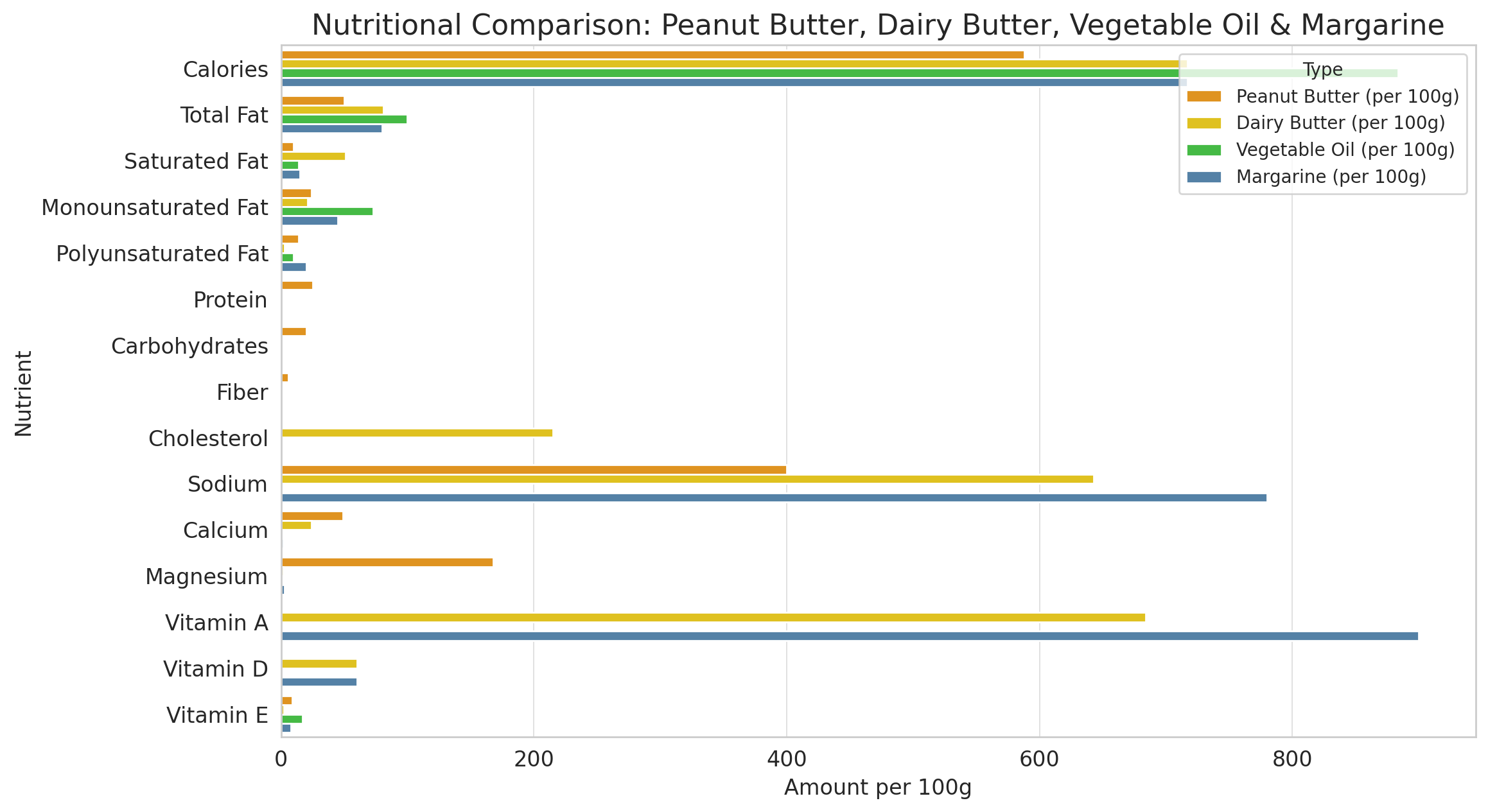

TEL: 1-608-238-6001 Email: greg@cruisingreview.com
Bemer Evo Review PEMF with New User Testing the Device Horrible customer service and questionable device with side effects ... new user tests device with side-effects More Info

|

|
Butter or peanut butter? One is creamy and rich in dairy fats, while the other is packed with plant-based protein and heart-healthy fats. Which should you choose for a healthier diet? Let’s break down the nutrition facts and see which spread wins. Here’s a well-structured web-based article, including a title, meta description, and teaser for engaging online readers.---Title: Peanut Butter vs. Dairy Butter: Which One is Healthier?Meta Description: Peanut butter and dairy butter have distinct nutritional profiles, but which is the better choice for your health? Discover their differences in fat content, protein, fiber, cholesterol, and more to make an informed dietary decision.Teaser: Butter or peanut butter? One is creamy and rich in dairy fats, while the other is packed with plant-based protein and heart-healthy fats. Which should you choose for a healthier diet? Let’s break down the nutrition facts and see which spread wins.---Peanut Butter vs. Dairy Butter: A Nutritional Showdown When it comes to choosing between peanut butter and dairy butter, the decision often depends on taste preference, dietary needs, and health goals. Both are widely used in different diets, but they offer vastly different nutritional benefits. Here’s a breakdown to help you decide which one deserves a place in your kitchen.1. Calories and Fat Content Dairy butter is more calorie-dense, packing around 717 kcal per 100g, compared to peanut butter’s 588 kcal per 100g. This is largely due to butter’s high saturated fat content (~51g per 100g), while peanut butter contains more monounsaturated and polyunsaturated fats, which are considered heart-healthy.👉 Verdict: Peanut butter is the better choice for those looking for a healthier fat profile.2. Protein and Fiber If you need a protein boost, peanut butter is a superior option. It contains ~25g of protein per 100g, compared to butter’s negligible 0.85g. Additionally, peanut butter provides fiber (~6g per 100g), which is absent in butter.👉 Verdict: Peanut butter wins for protein and digestion-friendly fiber.3. Cholesterol and Heart Health Dairy butter is rich in cholesterol (~215mg per 100g), which can raise LDL (bad cholesterol) levels when consumed in excess. Peanut butter, being plant-based, contains zero cholesterol, making it a better choice for heart health.👉 Verdict: Peanut butter takes the lead for cardiovascular health.4. Micronutrient Content • Peanut Butter: High in magnesium (~168mg), calcium (~49mg), and vitamin E (~9mg). • Dairy Butter: Richer in vitamin A (~684 IU) and vitamin D (~60 IU) but lower in essential minerals. 👉 Verdict: Peanut butter provides a wider range of beneficial micronutrients.5. Sodium Levels Both salted butter and commercial peanut butter contain added salt. However, butter typically has more sodium (~643mg per 100g), while peanut butter varies but is often around 400mg.👉 Verdict: Peanut butter generally contains less sodium, but check labels for added salt.---Which One Should You Choose?• For Heart Health: ✅ Peanut butter • For Muscle Building & Protein Intake: ✅ Peanut butter • For Keto or Low-Carb Diets: ✅ Dairy butter • For General Nutrition & Weight Management: ✅ Peanut butter Final ThoughtsWhile both peanut butter and dairy butter have their place in different diets, peanut butter is the healthier choice for most people due to its better fat composition, protein, fiber, and lack of cholesterol. However, if you’re following a ketogenic diet or prefer a pure fat source, dairy butter might suit your needs.---Would you like a custom infographic or a downloadable comparison chart to include on the webpage? 🚀
|

Compare vs Margarine and Vegetabe Oil |
| CONTACT TEL: 608-238-6001 Email: greg@cruisingreview.com | AMP | PDF |